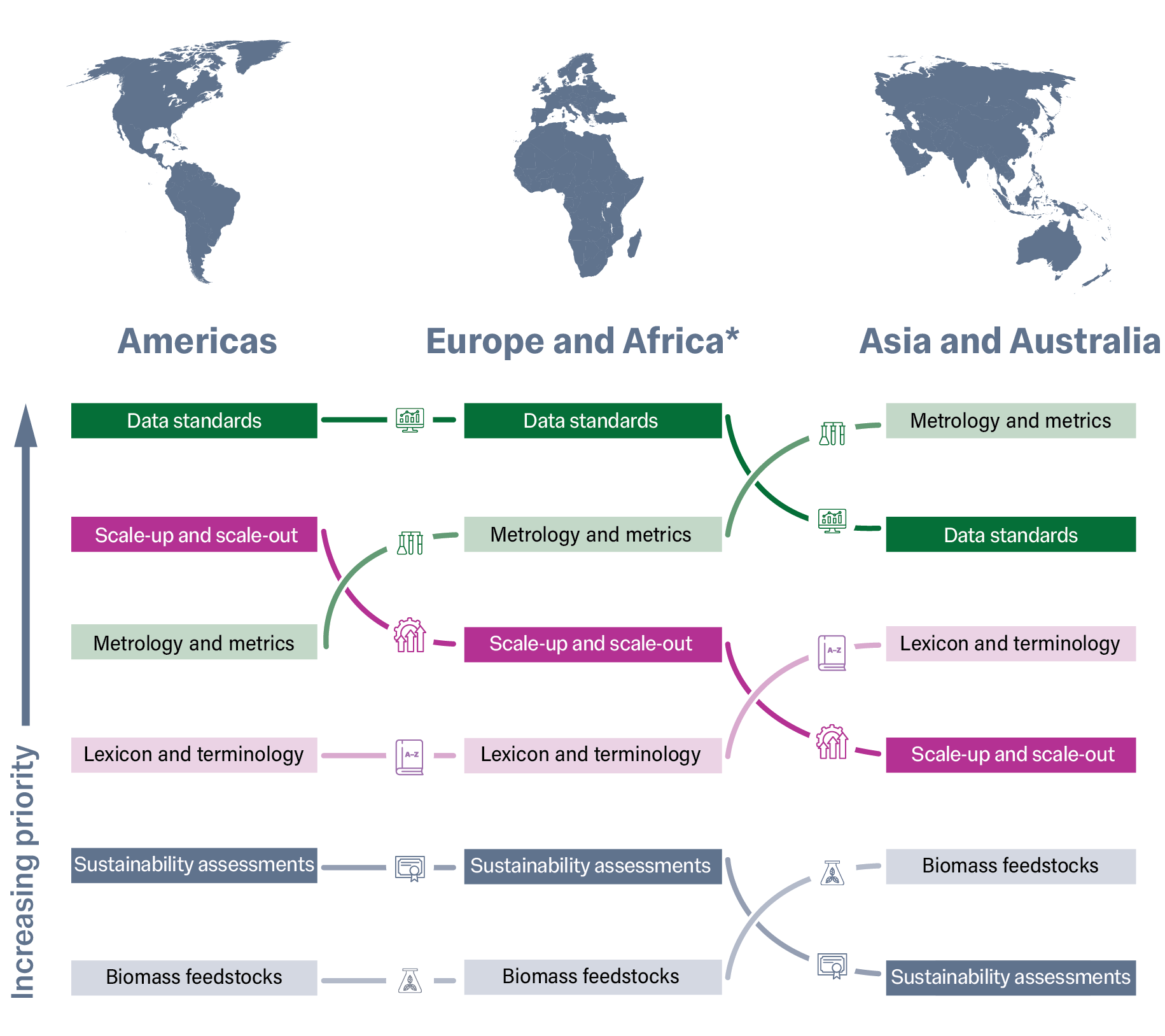An urgent call for technical standards and metrics for engineering biology

It has become apparent in recent years that there are few standards and metrics specific to and appropriate for the field of engineering biology. Despite this, there are clear opportunities for standards to support faster development and enable acceleated commercialisation of the bioeconomy. Paul Freemont, head of structural and synthetic biology department of infectious disease at Imperial College London, shares his thoughts of the publication of a report focused on determining the engineering biology metrics and technical standards needed to accelerate the global bioeconomy.
The value of the global bioeconomy is now estimated to be around four trillion dollars, with continued accelerated growth expected, according to the World BioEconomy Forum. There is a new sense of urgency pushing the bioeconomy and the role of engineering biology to the forefront of global discussions. Policymakers acknowledge the huge potential benefits, economically and for future sustainability. However, there is a lack of specific standards and metrics applicable to the
Despite repeated calls from industry experts to address this, the continued lack of standardisation threatens to cause major issues across the sector, ranging from an inability to share data or facilitate international technology transfer, to a lack of product quality assurances. Furthermore, without standardisation, the sector risks being monopolised by a small number of large industry players, as the barriers to bringing new products to market, due to regulatory hurdles and high start-up costs, are too great for small and medium-sized enterprises
A Task Force was convened with the aim of adding specificity to the call for standardisation: to better understand what standards and metrics are needed, how these should be prioritised, and how regional differences should be addressed. The effort was jointly coordinated by Imperial College London, the Engineering Biology Research Consortium (EBRC), the National Institute of Standards and Technology (NIST) and the National University of Singapore (NUS), and supported by Schmidt Sciences.
A report has now been published with the outcomes of this effort, identifying ten key areas that are recommended for standards and metrics development to support the acceleration of the bioeconomy.
Ten Key Areas for Engineering Biology
The report identifies ten consensus areas for standards and metrics development to enable innovation and accelerate commercialisation of engineering biology products and processes.
Six technical areas include data standards; metrology and metrics to quantify biological processes; scale-up and scale-out; lexicon; metrics and standards for sustainability assessments; and standards to enable the use of biomass feedstocks.
In parallel, four non-technical areas are identified to support the successful implementation of these technical areas. These include training and education on standards and metrics; public engagement, improvement of public perception, and building trust; regulatory clarity; and biosafety and biosecurity

Recommended standards applied across the engineering biology process, to support accelerated commercialisation of the global bioeconomy.(Source: Engineering Biology Metrics and Technical Standards for the Global Bioeconomy report)
establishing open, voluntary standards in these key areas would address the lack of shared and interoperable vocabulary, methodology, and metrology that currently exists across the engineering biology pipeline, helping to avoid major challenges as the global bioeconomy continues to grow.
Leveraging Regional Differences
While the bioeconomy is growing globally, with over 50 nations now having published bioeconomy strategies, there are vast differences in the state of the bioeconomy regionally. This is due to a combination of factors, including technology readiness, the innovation landscape, levels of public support, and existing regulatory frameworks.
To better understand the regional differences at play and the varying priorities for standardisation globally, three international workshops were convened. Stakeholders from the Americas, Europe, Asia, and Australia discussed regional perspectives, approaches, and barriers to developing standards for engineering biology.

Key technical areas as ranked by region. This ranking is the result of responses to a survey inviting all workshop participants to identify the priority order as they see relevant to their region. Priority could be resultant from a combination of factors, such as the need for standardization coupled with technology readiness. Lower ranking may not therefore imply lesser importance. (Source: Engineering Biology Metrics and Technical Standards for the Global Bioeconomy report)
Discussions highlighted the need to address even the most basic concepts, such as defining what is meant by the term ‘bioeconomy’ or the sometimes-interchangeable use of the terms ‘engineering biology’ and ‘synthetic biology’.
However, despite differences, there was a clear consensus that having some form of standardisation is necessary. In some instances, national or regional standards and development efforts should be pursued to build on individual strengths and priorities. For example, across the Americas, standards development could be initiated more quickly in response to emerging technologies. Meanwhile, across Europe, the more holistic approach to sustainability and environmental impact could inform sustainability and life cycle assessments.
Leveraging regional strengths could ensure that standards are implemented sooner rather than later and are appropriate to the regional context. Where some regions are farther ahead in terms of technology readiness or have more established practices already in place, there are opportunities to introduce standards that can then be adopted in time elsewhere. In parallel, it is important to pursue global coordination and harmonisation in setting standards for the global bioeconomy.
More news and updates
.png)
.png)